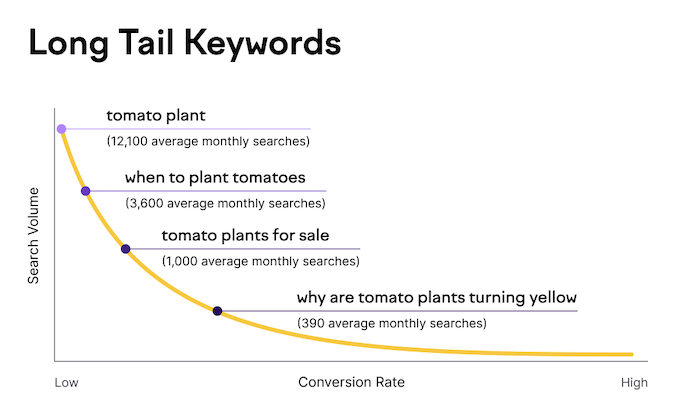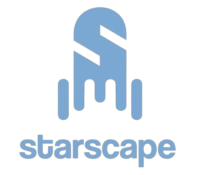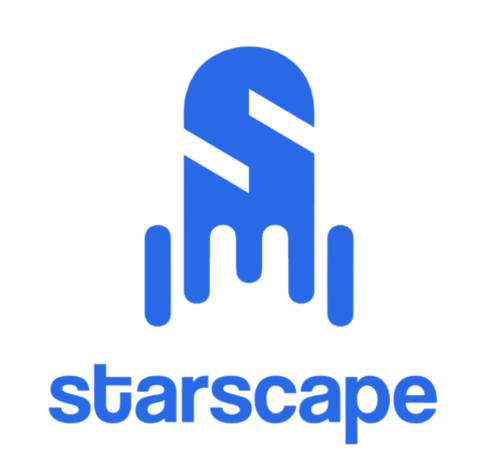Hi folks, Dave Fox here from Starscape SEO, and in this blog post, I want to answer the question: “Does my business need SEO?” And by “my” business, I mean your business.
I’m writing this article because many people who run businesses will often say to me, “Is SEO… optional?” or even “What does SEO mean again?” I hear questions like this so much, it haunts my dreams, so I figure I’d try to sum it up here…
Can Businesses Just Ignore SEO?
The insinuation I’ve heard again and again is that SEO is just some marketing term that can actually be ignored completely, if you run a business.
This is what the kids might call a “cope” – something you tell yourself to get through the night.
Lots of people don’t have the room to remember yet another marketing acronym (fair!), and some think it’s just a meaningless buzzword.
There are also some who suspect it may be kind of important (assuming it really does exist), but have neither the time nor interest to investigate, or try to learn what it is.
Just look at this guy – he doesn’t “get” SEO, and just hearing about SEO annoys him like a mosquito buzzing around his face.

He’s the type that avoids technology, and smart phones and the internet – these things easily frustrate him, and they seem very unlike actual “work”.
This is, of course, a stereotype, but I can relate to this point of view.
There’s something fairly annoying about how technology seems to be difficult to use and to keep up with. Smart phones will call your ex if you touch them the wrong way, and websites are known to “crash” sometimes.
Why bother with online affairs when there’s “real” work to do?
Now, not everyone viscerally hates hearing about SEO. Some people just calmly don’t pay attention to it, and focus on parts of technology they like, perhaps casually thinking of SEO as made up hogwash, or nothing of consequence to them or their business.
Being someone that works in the SEO world, I find it rather amazing that people think of SEO like Bigfoot – some mythical made up thing that no one’s ever really seen.
When, in fact, it is in use on all levels of the internet at all times and does have a major impact on everyone.
Before we go any further, let’s just clarify – SEO stands for Search Engine Optimization, and it’s been around since the year 2000, roughly.
Let me assure you right now – SEO is a real thing, with real affects on anyone who goes online.
SEO has been a field of interest ever since search engines like Google got popular, which was around 2004, when about 200 million people globally were searching on Google every day.
I have talked to a lot of people, most of them over the age of 40, who are not tech savvy, and think SEO is just a joke. “I don’t need it. Never have. Never will!” That’s their attitude towards it.
See these backwoods folks? They think they don’t need it. They’ve never even seen a computer before!

When I look at some of these more hands-on businesses a little closer, this dismissive attitude towards SEO makes sense.
Some businesses do almost no business online. They don’t need a website, they have no social media accounts, and they generally ignore the internet entirely.
Instead, they do most of their actual business in person, either at a job site, or in a brick and mortar store.
Sure, there are businesses like this, who live in the stone age, but the second you are dealing with anything online, SEO does come into play whether you like it or not.
So…What IS SEO? (Get to the point, already!)

I’ve said a lot of things so far, but not what SEO is. So what is it?
Search Engine Optimization means the practice of taking your business’s website, and optimizing it for search engines. That’s the short answer. More to come, keep reading.
So, now, what the heck is a “search engine”?
Well, have you heard of Google? That is the biggest search engine out there. It’s basically a mega huge online directory, and that directory is like a map to get to the roughly 200 million active websites on the internet today.
But a search engine isn’t just a static directory of websites. It’s also an equation that helps you find relevant information to access each website, according to where you are located.
Without the “engine” part, Google couldn’t provide search results relevant to what you typed in.
That’s why tech geeks are always talking about what “drives” search, because it’s the power of the search engine, to bring us all these results that are out there, that Google needs to find, according to what info we give it.
Web Queries / Keywords

Imagine this – there are people all over the world using their phones and laptops to search for things online with Google, typing in “queries” such as “Pizza shops near me” and “Buy Taylor Swift concert tickets”.
These are things people want to know more about, or, sometimes, get (like a concert ticket, or pizza).
A query, or “web query” is simply a bit of information to help Google direct you to where you’d like to go on the internet, which is usually a website.
Queries, when you type them into Google, are also called keywords. Keywords are a very important SEO term, because they define the thing you want to know or want to get. Specifically, a keyword can contain more than one word, like “Art galleries in New York City” (that’s one keyword).
Keywords are divided into “short tail” and “long tail” keywords. A short tail keyword would be something like “pizza shop near me”, and a long tail keyword would be something like “What is the difference between NASCAR and Formula 1 race cars?”
These long tail (aka longer) keywords often end up being more like specific questions to Google, and Google will provide you a website that gives you the answer.
The more specific or “longer” the keyword, the less people are out there typing it into Google during any given day.

For example, there are more people typing in “pizza shop near me” than there are typing in “What is the difference between NASCAR and Formula 1 race cars?”
The number of people that type in any term you can think of is known – not to you or me – but to Google, because Google keeps track of these numbers for every keyword.
By the way, keywords are each assigned a dollar value, based on where you “rank” for it. For instance, if you “rank” (show up at the top) highly for “real estate New York City”, you can imagine, it has a higher dollar value than ranking for “tiddlywink convention”.
Now, keep in mind that when Google provides you with an answer to your query, it’s basically referring to a website.
This is because Google gets all of its answers from websites that it didn’t create. Users create the websites, and Google just connects people looking for answers to these websites.
So, if it so happens that I know where Bigfoot is located, and I have a picture to prove it, and I mention it on my website here, when someone types “has anyone actually taken a picture of Bigfoot”, my website may come up, because I have that information stored on my website.
It’s Google’s job to know what’s on my website, and to show the person searching for the information, since I am the one with that specific information. Get it?
Of course, there might be 10 people who all claim to have pictures of Bigfoot, and so Google would probably try to show people looking for pictures of Bigfoot those ten websites, as opposed to other websites which don’t claim to have anything to do with Bigfoot. Disclaimer: I have no pictures of Bigfoot here anywhere
Which Businesses Really Need SEO To Succeed?

Ok, so let’s get to the conclusion here and stop beating around the bush. Do I think all businesses need SEO to succeed today?
I’d say no, because not all businesses are concerned with things online. Some businesses, as I said near the start, don’t deal with the internet. They do their business by referral, or in person, and so they may not even have a website.
BUT – if you are a business that does have a website, SEO becomes relevant to you quickly, because you are, at that point, in competition with other businesses trying to sell products or services using their websites.
Google, being an index that divides all its results into pages with 10 results each (unless you change that setting), only has so much room on the coveted first page of its results to fill with websites.
Luckily, in the context of local businesses, where it’s not a huge city, there may only be 10 plumbers with websites, and so they all might show up, but this is where SEO becomes fairly critical, because all of those plumbers would prefer to be #1 on the list, and there is only room for one #1.
This is where we could dive into paid results versus organic results, but I won’t do that here.
Suffice it to say, unless you pay Google to be in the “sponsored” or paid section that gets auto-posted to the top of the results for any query, the “organic” results are the people who show up near the top because they have better SEO than the next person.
Here are some “sponsored” results, always showing at the top, due to people paying Google.

The more expensive the product or service, generally speaking, the more it costs you to get “sponsored” by Google, ie. selling a Porsche, versus selling an apple.
The problem posed by all of this arranging businesses in a certain order is that those businesses who appear higher in the order in Google, are seen by the general public as better, and they’re the first to get called by potential clients.
Keep in mind, that most people (70%) use Google, while 20% use Bing (Microsoft), and the rest use other search engines like Yahoo or Yandex.
These are not to be confused with internet browsers, like Chrome, Safari, or who remembers Netscape or Internet Explorer? We’ll have a discussion somewhere else about how browsers and SEO relate to each other.
Let’s get back to ranking #1. You can see how all of this “I need to be #1 in Google” can lead to a catfight (or dogfight, if you prefer) over who’s #1.
To some businesses, the #1 spot, whether it be car detailing, landscaping, real estate agent, dentist, pizza shop, spa, and the list goes on and on….the #1 spot is all that matters, because it means more money, and so it is at this point that businesses say “How can I be #1?”
Always keep in mind that every time a person clicks on your website, your chances of making more money than your competitor increases.
Why Hire Starscape SEO
This is where I come in, as an SEO expert consultant.
Most SEO agencies all will tend to claim to have the advice you need and skills to take your business to the top of Google (or any other search engine, like Bing), because they know the special techniques to do so.
I would make this claim myself, but here I’m trying to qualify that claim, because it needs explaining.
I would say that it’s not always about getting to the very top at all costs – some businesses just need to start by making some reasonable amount of headway when it comes to SEO, as many businesses haven’t really ever taken a close look at their SEO at all, so I can help with that.
I will add that I am looking to work with people who are open-minded and collaborative.
Businesses that want instant results need not apply, and this is specifically because ranking instantly is not exactly a reasonable proposition, especially if you’re not going to pay Google to be at the top right away.
The only people who tend to jump to #1 are the people who are willing to spend any amount on Google ads, which can require a huge and ongoing budget, especially if the “keyword” they want is expensive.
Mastering SEO can have many benefits, but it also will take time to tune into that frequency, and so I’d say it’s not a good idea to rush towards it. Slow and steady, my friends, slow and steady.
Call or Text Starscape: (519) 208-8680



